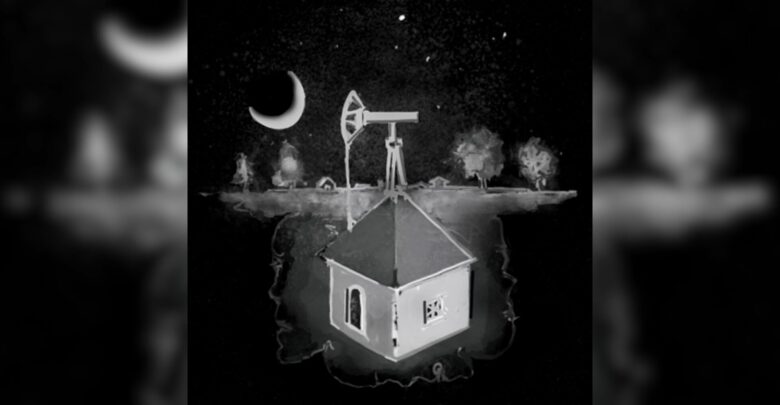2025 Fringe Festival Review: ‘Orphan Well’
While it’s definitely not a light-hearted Fringe show, it’s rich with commentary on Alberta’s politics and industry.
 Supplied
SuppliedAs the title would imply, Orphan Well, written and directed by Len Falkenstein, is a play about orphan wells — oil wells that no longer have an owner, often because the oil company has gone bankrupt. But the play is a commentary of a lot more than just the wells themselves. It’s about the oil industry, the women working in it, and religious extremism.
While overall, the play is a really interesting critique of multiple issues woven together to make a well-rounded story, the play lost me after a certain point.
The play largely follows Katie (Mary Walker), who has worked in the oil industry but has now taken a job in the oil-adjacent industry of cleaning up orphan wells. While on the job, Katie ends up on the property of a town spiritual leader, Peter (Jake Martin). Allegations of sexual abuse against Peter start popping up.
All the while, a local journalist, Rachel (Rebekah Chassé), is trying to find any story her editor will take about the wildfires, orphan wells, or the allegations against Peter. Unfortunately for her, she keeps hitting a wall.
All of the performances were on point, but Chassé’s was a standout. Her raw emotion — whether it be anger, uncertainty, or grief — hit me in the gut. The frustration and hopelessness at trying to expose the wrongdoing that has left so many orphan wells or led to constant wildfires but finding no way to do it was hard to watch. Even harder was when she broke down.
The setting of the stage was simple, mostly sticks coming out of the ground and a couple of chairs. A few times throughout the show, a microphone for the local radio report would make an appearance. But aside from that, there was nothing else onstage. Yet, the cast and crew brought it to life with the smart use of lighting and moving the simple props around.
Easily, the best use of the sticks was when Rachel was interviewing the environment minister (Jake Martin) about the wildfire approaching the town. As Rachel and the minister talked, Martin lined up the sticks like a forest. Then, while insisting nothing was wrong, he knocked them over, row by row, to symbolize the fire reaching town.
It was startling and haunting. Partly because of Martin’s use of the props, but also because the dialogue echoed the United Conservative Party on these same topics..
While the play did an incredible job taking the politics of Alberta and the oil industry and infusing the play with it, towards the later part of the play, it lost me.
A huge part of the commentary of the show is around the abuse of women in the oil industry and in religious or spiritual settings, like that of Peter’s cult. Katie, who has been victim to sexual abuse in these settings, wants to save other women in similar situations. But she gets trapped in doing so.
It’s unclear if she’s truly trapped or if it’s more of a representation of her trauma that’s separate from the reality of the play. That got more confusing as she interacted with other characters who, two seconds later, would be in a different place, doing something entirely different. I spent more time trying to figure out if Katie’s conversations were real than I did actually experiencing the last scenes of the play.
The play otherwise did a great job at making it clear when the setting and the characters, which the cast all played multiple of, changed. That unfortunately wasn’t as true for the ending.
Even with a confusing and disorienting ending, the play offers a rich commentary on different elements of Alberta’s politics and industry. It managed to weave several issues into one story without one overpowering the other. The performances and use of the props can’t be understated either.
Orphan Well is on at the Edmonton International Film Festival until August 24.




